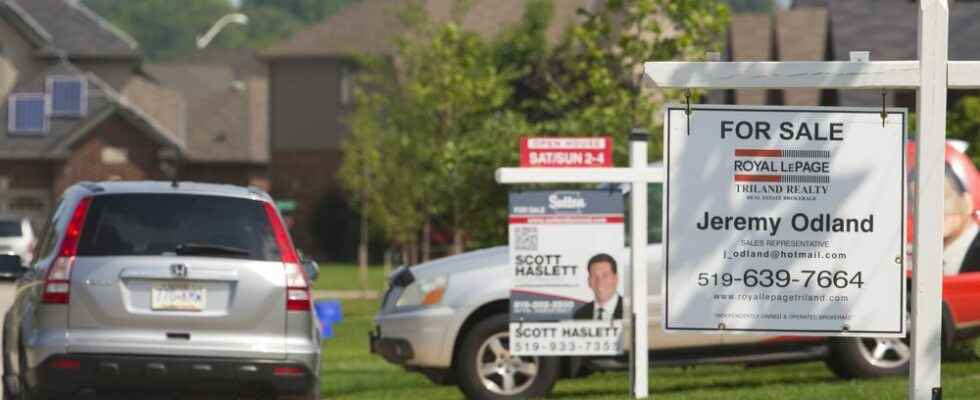The average price of a London-area home dropped for a third straight month in May, after nearly two years of unprecedented price growth in the region, new figures show.

The average price of a London-area home dropped for a third straight month in May, after nearly two years of unprecedented price growth in the region, new figures show.
Chalk up the cooldown that could continue in months ahead to higher borrowing costs and economic uncertainty amid rampant inflation, but don’t expect it to make a huge difference to first-time buyers trying to enter the market, some observers say.
The average resale price of a city home last month was $762,000, according to figures released Thursday by the London and St. Thomas Association of Realtors (LSTAR).
That’s down about $9,000 from April’s $771,682 average price and well below February’s $825,000, the all-time record for the London region that takes in St. Thomas, Strathroy and parts of Elgin and Middlesex counties.
The latest home price figures come a day after the Bank of Canada increased its policy rate that affects the cost of borrowing for mortgagors and car buyers by half a percentage point to 1.5 per cent as it continues to fight inflation.
The increase, and more expected later this year, will help slow what was a frenzied market only a few months ago, said economist Mike Moffatt, a professor at Western University’s Ivey school of business.
“The language that the Bank of Canada used suggests that more aggressive hikes may be coming in the future which could slow things down even faster,” he said.
“So I am expecting a slowdown, but on the on the housing side. . . there’s still so much demand out there from population growth that the long-term outlook for the real estate market (in London) is strong.”
A total of 844 homes exchanged hands in May, LSTAR said, far off May 2021’s 1,258 sales, the second-highest May tally on record.
At the same time, new listings hit 1,835 last month, a record for May in the region.
Vicki Zavitz, a realtor with Century 21 First Canadian, said the market may be taking a break amid all the economic uncertainty.
“There’s interest rates, there’s inflation, there’s the war, there’s all these things. . . and it’s almost like at the beginning of the pandemic, when people didn’t know what was going to happen . . . so that’s the dip we’re seeing,” she said, adding homes are staying on the market longer and drawing fewer offers.
Homeowners with mortgages up for renewal are likely to be among the hardest hit by expected interest rate hikes this year, as they’ll face higher monthly payments, said Robert Hogue, a senior RBC economist.
And while rising rates may help cut home prices, it won’t be enough to improve the affordability picture for first-time home buyers, who have struggled to enter the market as home prices grew beyond their reach, he added.
“If you want to get into that housing market, the bar is going up as the qualifying rates are going up. . . so first-time homebuyers are clearly being challenged,” Hogue said.
“If home prices decline, it may provide a little bit of an offset. But at the end of the day, we don’t think that prices will decline enough to offset the rising rates,” he said. “So things are, from an affordability perspective, going to get worse before they get better down the road.”
